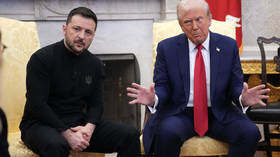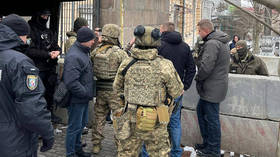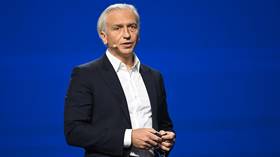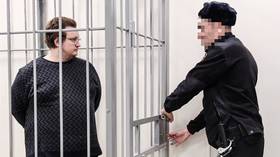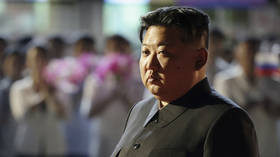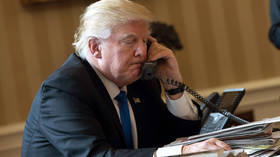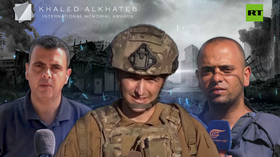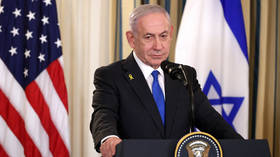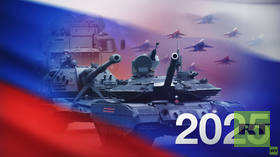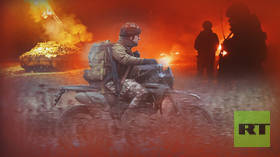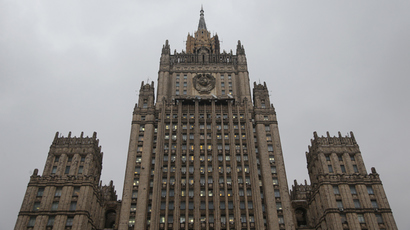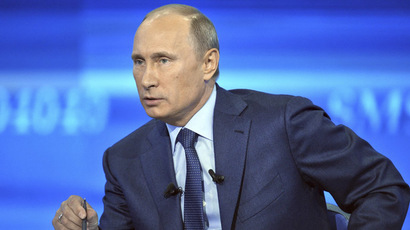Assad: Syria to hand over chem arms in 1 month, only if US drops strike plans
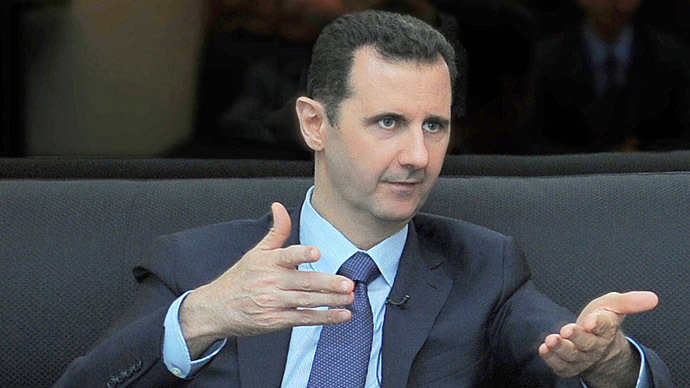
Syria will start handing over information on its chemical weapons to international groups a month after it signs the Chemical Weapons Convention, President Bashar Assad has told a Russian TV channel.
Damascus has agreed to a Russia proposal to put its chemical
weapons stockpiles under international control.
“Syria is handing over its chemical weapons under
international supervision because of Russia,” Assad said in
an interview with state-run news channel Rossiya-24. “The US
threats did not influence the decision.”
Within days Damascus promises to submit to the United Nations all
documents required for joining the chemical weapons ban treaty. A
month after Syria signs the Chemical Weapons Convention it will
start handing over information on chemical weapons to
international organizations.
“I believe the agreement will come into force a month after
the signing and Syria will start submitting data on its chemical
weapons stockpile to international organizations. These are
standard procedures and we are going to stick to them,” he
said.
Meanwhile, the UN says that it has received a letter from Syria
on the country’s intention to join the treaty banning the
production of chemical arms, their stockpiling and use. The
Syrian government’s letter of accession is being translated, AP
cited UN associate spokesman Farhan Haq as saying Thursday.
Signing the letter accession begins the process for a country to
become party to the international agreement, the official said.
“It doesn’t mean that Syria will sign the documents, fulfill
the obligations and that’s it. It’s a bilateral process aimed,
first of all, at making the US stop pursuing its policy of
threats against Syria,” Assad said, adding that a lot would
also depend on the extent to which Russia’s proposal is accepted.
“Terrorists are trying to provoke American strike against
Syria,” Assad said. Rebel forces are receiving chemical
weapons from abroad, he added.
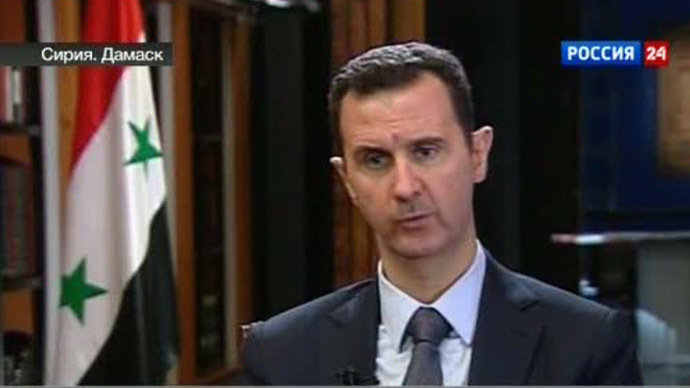
Countries that provide “terrorists” with chemical weapons should be held accountable, Assad said.
“We should thoroughly investigate the [chemical weapons used in the attack] to discover their components and which side used them,” Assad said.
“All states claim that they do not cooperate with terrorists, but we know for sure that the West provides them with logistical support,” he said, adding that the West and some countries in the region, including Turkey and Saudi Arabia, “maintain direct contacts with terrorists and supply them with all kinds of arms.”
Both the Syrian government and rebel forces have blamed each
other for the chemical weapon attack in a Damascus suburb on
August 21.
Talking to the Russian TV channel, Assad reiterated that the US
has failed to present evidence that the Syrian government was
behind the incident.
No country in the Middle East, including Israel, should possess
weapons of mass destruction, Assad said. That would protect the
region and the world from devastating and expensive wars in
future, he said.
“If we want stability in the Middle East, all the countries in
the region should stick to [international] agreements," Assad
said. “And Israel is the first state that should do so, since
Israel possessed nuclear, chemical, biological and all other
kinds of weapons of mass destruction.”
The president recalled that a project on the elimination of WMD
had been proposed, but the US opposed it “to allow Israel”
to have such weapons.
Any kind of a war against Syria would “destroy the entire region” and lead to decades of instability in the Middle East, Assad said.
“Syria is making serious efforts so that our country and other
states in the region will not be involved in a new crazy war that
some proponents of the war in the US are trying to unleash in the
Middle East,” he said.
Earlier in the week, RT, citing unnamed sources, reported that rebels could launch a chemical attack on Israel from government-controlled territories as a “major provocation.” Assad did not rule out such a scenario. Toxic agents “were used against Syrian Army soldiers and civilians” and that therefore rebel forces did have these weapons, he said.
“Everyone is aware that terrorist groups and those who control them are trying to provoke an American strike. Earlier, they attempted to draw Israel into the Syrian crisis,” Assad said.
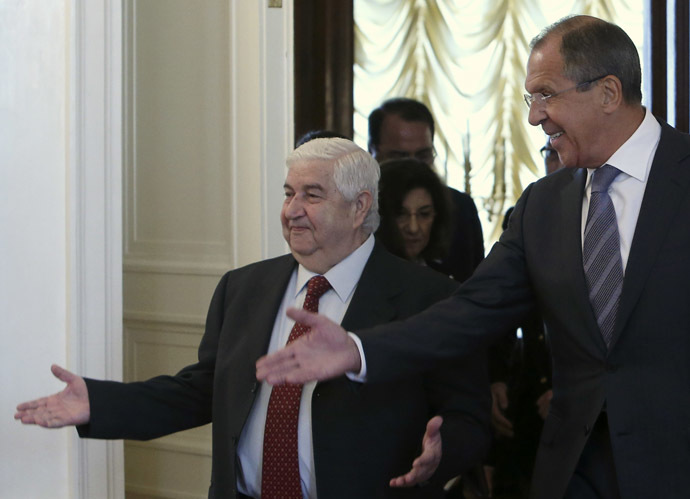
On Monday, as the White House was pushing for congressional
approval of the military strike against the Syrian regime,
Russia’s Foreign Minister Sergey Lavrov urged Damascus to put its stockpile of
chemical weapons under international control.
Moscow also called on the Syrian government to join the Organization for the Prohibition of Chemical Weapons.
Syria accepted the proposal and agreed to sign the Chemical
Weapons Convention.
Moscow’s initiative was also welcomed in Washington. President Barack Obama urged the US Congress to postpone a vote to authorize military action, and said he was seeking a diplomatic solution to the Syrian conflict.
US Secretary of State John Kerry and Russia's foreign minister, Sergey Lavrov, accompanied by groups of experts, are scheduled to meet in Geneva late Thursday to discuss in detail Moscow's plan to dispose of Syrian chemical weapons.


